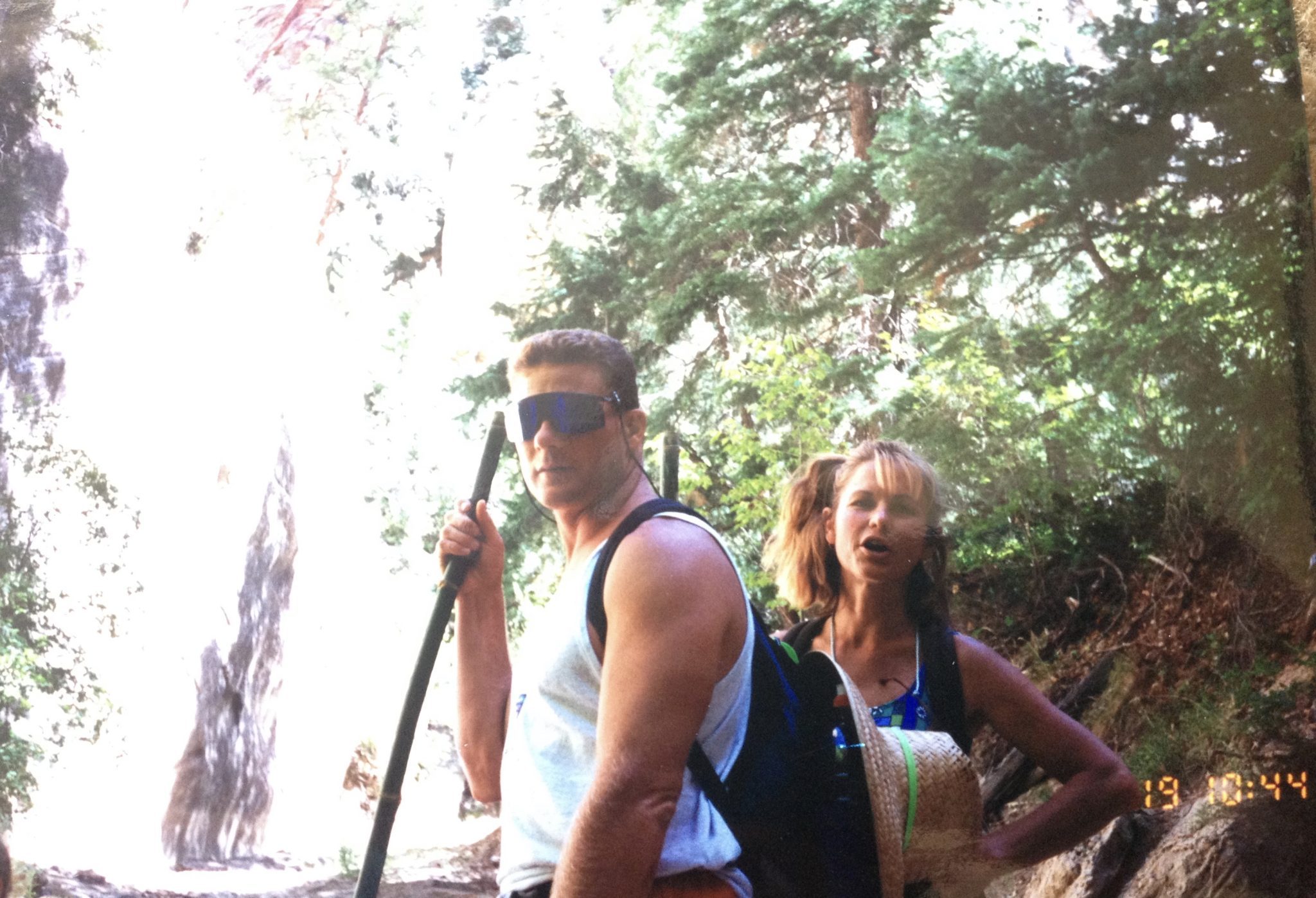Last week, I had the great good fortune of receiving the Kalachakra empowerment from His Holiness the Dalai Lama. The empowerment itself was full of complicated instructions for visualizations and recitations. I did my best to read beforehand, and each night, myself and other enthusiastic students attended teachings given by a Geshe who was kind enough to explain the technicalities of the empowerment. On the day of the actual initiation, however, I had trouble concentrating. Rather than seeing deities, the only person I could think of was my mom.
I moved away from home when I was eighteen. I wanted to be far away, so I chose UC Santa Cruz, an eight-hour drive from home with no convenient nearby airports. For the next four years, I called home no more than once every few weeks. When I did, my mom and I rarely had a conversation that didn’t turn into a quarrel. She often hung up on me. One time, when I was home for the holidays, she exclaimed, close to tears, that I had decided I didn’t need a mom anymore. And she was right. I was convinced that all I needed was myself.
I did call home if I needed something. If my tuition bill needed paying, or I ran out of vitamins, or if I didn’t have enough grocery money, I called my mom. She always gave, even if I didn’t ask nicely. Helping me with money matters, I see now, was the only way she felt she could connect with me during that time.
My mom and I stopped getting along when I was a teenager. She was an obstacle in the way of my independence. She wasn’t O.K with late nights or sleepovers with friends she didn’t know. She disapproved of my vegetarianism. She was a Republican, I an outspoken, thirteen-year-old member of the Green Party. She liked romance novels, I preferred Albert Camus. If the music was audible on the car rides back from school, she thought it was too loud. She hummed tuneless melodies when she swept the floor, I played classical piano. When she and my father made me go to mass on Christmas Eve, I proclaimed that I was an atheist within the earshot of churchgoers in the surrounding pews. She didn’t want me to go to UC Santa Cruz because a crowd of angry students burned an effigy of George W. Bush when she had visited. This, of course, was one of the reasons I chose to go.
As a teenager, I often dreamt of moving to a foreign country where I didn’t know anyone, and where my parents couldn’t control me. This dream materialized when I came to Kathmandu two years ago. I moved into an apartment by myself. It was unfurnished. The walls, painted a musty hue of beige, were blank. There weren’t any rugs on the cold floors. I went to cook something, but was startled to find I didn’t have a knife to chop vegetables with or a frying pan to fry them in. There was no trashcan, no dish soap, no sponges, no broom. Hell, I didn’t even have toilet paper. I thought of my mom. How had she always managed to keep track of all these details?
As I fell asleep that first night, I panicked. I had never felt so alone. Wifi hadn’t yet been installed in the building, and I didn’t have working cell service in those early days. I couldn’t call a friend or watch a movie to distract myself from the loneliness. A few cockroaches were around to keep me company, but the sound of their tiny feet on the linoleum floor wasn’t exactly comforting. I stared at the ceiling for hours, waiting for the feeling to pass. It didn’t.
Over the next weeks, I comforted myself by mimicking my mom’s habits. When I managed to install wifi, I took to watching the cheesy, early nineties romantic comedies that I used to watch with her and my sisters while we built puzzles or baked cookies. I spent a desperate week in search of an affordable rug to put next to my bed — my mom always stressed the importance of having something nice to put your feet on when you first wake up in the morning. I bought a broom, and sang while I swept. I liked to think my show tunes were better than her nonsensical humming. (They were worse.)
My mom and I get along much better now. I’ve been home a few times since I first left for Asia, and the two of us have developed the friendship that I’ve been missing out on for all these years. Though it wasn’t until last week, when I met with His Holiness, that I began to understand the depth of my relationship with her.
Among His Holiness’s most important lessons is one of selflessness. While I still have much to learn on that topic, he made it possible for me to glimpse what it means to be selfless and how it feels to love selflessly. With each glimpse, I felt I found something I had been searching for since I was a child. But the reason I was searching for so long, the reason I felt I had lost something, was because I had willfully forgotten something my mom had already given me.
Like an amnesiac who catches an elusive whiff of a former lover’s perfume, I’ve spent these early adult years pursuing a listless nostalgia for a wholeness I couldn’t remember how to articulate. Being in the presence of the Dalai Lama reminded me that I never needed to look further than my own mother, who has shown me selfless love from the beginning. Another incomparable teacher of mine often says your mother is your first guru. I now see what he means.
Featured image: My parents, in the mid-eighties, before I made their existence more complicated.
